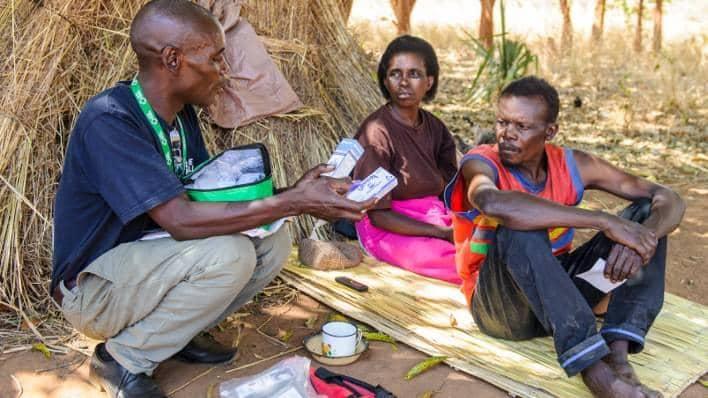
Seven lessons for a successful partnership
In 2013, Barclays and GSK formed a new partnership combining the skills and expertise of a bank and a healthcare company to help increase access to healthcare and improve economic livelihoods in Africa. A new report offers seven lessons learned from the project.
The partnership was one of the first between large corporates that focused on driving shared value. Its goal was to develop and test business models that would generate new routes to market for products and services and creating solutions to social issues in Africa.
Three years since the Zambia pilot launched many things have changed across both organisations. In addition, the Zambian economy’s growth rate has slowed dramatically as commodity prices dropped and major mining operations suspended production.
These changes have taught Barclays and GSK valuable lessons about what it takes for a partnership to be successful. To help shape future business models seven lessons were identified.
The seven lessons
1. Identify the right partners
Mark Thain, Director of Social Innovation, Barclays: “We know we can’t solve these problems as companies, or charities, or governments on our own - we need to bring complementary skills and capabilities together to enhance our impact. It was great that we found the right partner in GSK in regards to skill and capability fit, and we were brave to try and give this a go.”
2. Create a compelling vision
Diane Eshleman, Managing Director, Global Head of Citizenship and Reputation: “I applaud our respective CEOs at the time in creating the bold vision and commitment behind the original partnership— it was unprecedented. This pledge to make a genuine impact was critical in making it all happen.”
3. Understand the opportunity and environment in depth
David Low, Head of GSK Supply and Demand, Africa: “The opportunity, the market and regulatory environment need to be assessed in detail up front, as far as you can. It can be extremely challenging working in Africa – every market is different and brings its own complications. We need to go in to these sorts of opportunities with our eyes wide open and be ready to experiment and change course as necessary.”
4. Focus on innovation, impact and commercial sustainability
Diane Eshleman, Managing Director, Global Head of Citizenship and Reputation: “We need to continually challenge ourselves to make sure that we are creating businesses and partnerships that truly deliver shared growth for all. I think this partnership is a good illustration of how we can concurrently deliver both societal and commercial benefits to multiple stakeholders.”
5. Build dynamic teams that have local ownership
Mark Thain, Director of Social Innovation, Barclays: "You need to get the right mix of skills. It can take a long time to find the right people to deliver on such a programme, but they really are the key to success in difficult operating environments such as Africa.”
6. Start small, move fast, and fail quickly
Aisling Quirke, Head of Global Development Organisations, Barclays Africa: “We set ourselves big goals in a very complex market. I think the key lesson is that we need to start small, build some momentum, learn and then have the confidence that we can scale.”
7. Ensure resilience and patience
Kovilin Govender, Barclays GSK Partnership Team: “You have to be prepared to commit for the long term, and recognise it will take time to get it right.”
Download Sharing The Path Ahead: Insights From The Barclays GSK Partnership (PDF 4.5MB)